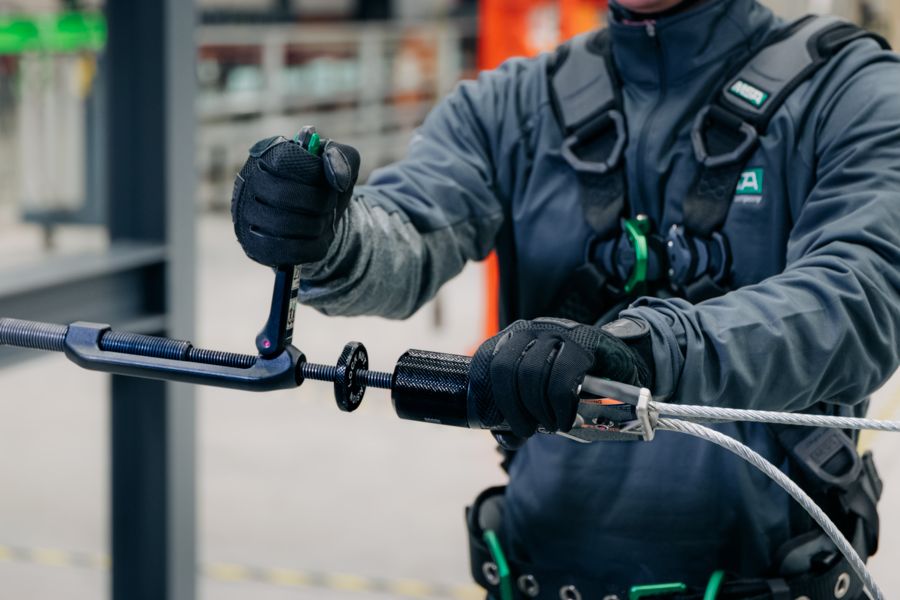
High ticket sales represent a significant opportunity for business professionals who aim to maximize revenue while delivering exceptional value. Unlike traditional sales, high ticket transactions involve premium products or services, which require a refined skill set and a strategic approach. The stakes are higher, and the buyers are more discerning, making trust, credibility, and persuasive communication critical elements for success. Developing a deep understanding of the psychology behind high ticket purchases allows sales professionals to align their solutions with the unique needs of their clients. A well-designed high ticket sales training curriculum provides the framework for mastering these techniques, ensuring that salespeople are confident, skilled, and consistently successful. Learning the intricacies of prospecting, nurturing relationships, and closing deals is central to transforming average sales performance into exceptional results. This training goes beyond simple tactics, fostering a professional mindset that prioritizes value, empathy, and long-term client satisfaction.
Core Components of a High Ticket Sales Training Curriculum
A high ticket sales training curriculum is structured to address every aspect of the sales journey, starting with identifying and connecting with ideal clients. Prospecting in high ticket sales requires precision and an understanding of which leads have the greatest potential to convert. Building rapport and trust early in the sales process is critical, as high ticket buyers often invest based on credibility and perceived expertise. Advanced sales psychology techniques, such as recognizing buying signals and anticipating objections, form a central part of the curriculum. Effective communication skills, including listening, mirroring, and delivering value-focused presentations, are emphasized throughout. Participants learn how to tailor their messaging for individual clients while maintaining consistency in their sales process. By addressing these core components, the curriculum equips sales professionals with both the knowledge and confidence to navigate complex sales conversations successfully.
Structuring Your Curriculum for Maximum Impact
The structure of a high ticket sales training curriculum can greatly influence how effectively participants absorb and apply the material. A modular approach allows learners to focus on one aspect of the sales process at a time, such as prospecting, communication, or closing. Role-playing exercises and scenario-based learning help participants practice techniques in a safe and guided environment, reinforcing theoretical knowledge through hands-on experience. Incorporating real-world examples ensures that learners can see how concepts translate into actionable strategies. Balancing theory with practical application is essential for developing both confidence and competence. Regular assessments and feedback sessions encourage continuous improvement and allow trainers to identify areas that need more focus. By creating a structured, interactive curriculum, organizations ensure that their sales teams develop strong, repeatable methods for consistently closing high ticket deals.
Essential Skills Covered in High Ticket Sales Training
A comprehensive high ticket sales training curriculum focuses on critical skills that drive results. Negotiation and objection handling are central, as high-value clients often have complex concerns and expectations. Closing techniques for premium offerings differ significantly from standard sales, requiring a consultative approach and a focus on outcomes rather than features. Personalized sales scripting teaches learners how to adapt their messaging to individual client needs without sounding rehearsed. Storytelling is a powerful tool within high ticket sales, helping to demonstrate value, build emotional connections, and differentiate solutions from competitors. Active listening, empathy, and confidence are equally important, ensuring that sales professionals can respond effectively to objections and guide clients through the decision-making process. Continuous practice of these skills reinforces competence, enabling participants to handle high-pressure negotiations with ease. By mastering these areas, learners gain the ability to consistently secure high-value deals while maintaining client satisfaction.
Tools and Resources That Enhance Learning
Modern high ticket sales training programs often incorporate technology and resources to enhance learning and application. Customer Relationship Management (CRM) systems allow sales professionals to track interactions, manage follow-ups, and analyze performance metrics. Online platforms can facilitate collaborative learning, allowing participants to share experiences, role-play remotely, and receive real-time feedback. Templates, checklists, and reference guides provide practical support for implementing new strategies immediately. Video demonstrations and recorded sales calls can serve as models, helping learners understand effective techniques in action. Integrating gamification or challenge-based learning elements keeps participants engaged and motivated throughout the program. Access to coaching and mentorship offers personalized guidance, reinforcing skills and addressing specific areas of difficulty. By combining tools, resources, and human guidance, a high ticket sales training curriculum ensures that learners can translate knowledge into consistent results in their sales careers.
Measuring Success Within a High Ticket Sales Curriculum
Evaluating progress is an essential component of a high ticket sales training curriculum, as it ensures that participants are developing practical skills alongside theoretical understanding. Key performance indicators (KPIs), such as conversion rates, average deal size, and client retention, provide quantitative measures of improvement. Skills assessments, role-playing evaluations, and self-reflection exercises allow learners to measure qualitative growth in confidence, communication, and negotiation ability. Feedback from mentors and trainers provides actionable insights, helping participants refine their approach and address weaknesses. Tracking progress over time ensures that training investments translate into measurable outcomes for both the sales professional and the organization. Continuous evaluation encourages learners to take ownership of their development, fostering a mindset of lifelong growth. With clear metrics in place, a high ticket sales curriculum becomes a structured path toward mastery rather than a generic learning experience.
Benefits of Completing a High Ticket Sales Training Curriculum
Completing a high ticket sales training curriculum offers tangible and intangible benefits that extend well beyond immediate revenue gains. Sales professionals develop confidence and competence in handling complex negotiations, enabling them to secure larger deals more consistently. Enhanced communication skills help in building stronger relationships with clients, fostering trust and loyalty over time. By learning proven strategies for objection handling, negotiation, and closing, participants create repeatable processes that reduce uncertainty and increase efficiency. A well-designed curriculum also supports professional growth, positioning salespeople as experts in their field and strengthening their personal brand. Beyond individual gains, organizations benefit from improved team performance, higher average deal values, and more predictable revenue streams. Investing in such training equips participants with tools and techniques that provide long-term advantages in competitive sales environments. Ultimately, mastery of high ticket sales translates into sustainable success for both the professional and the business.
FAQ
What qualifies as a “high ticket” sale?
High ticket sales typically involve products or services with a premium price point, often ranging from several thousand dollars to six figures. These sales require a personalized approach, deeper client engagement, and a focus on delivering exceptional value.
How long does it take to complete a high ticket sales training curriculum?
The duration varies depending on the depth and format of the program. Most comprehensive curricula are designed to be completed over several weeks to a few months, with ongoing practice and mentorship recommended for full mastery.
Can this training work for both B2B and B2C sales?
Yes, while high ticket sales often occur in B2B environments, many principles also apply to B2C markets, particularly for premium products or services where value perception and relationship building are key.
Are there prerequisites before enrolling in high ticket sales training?
While some programs may recommend prior sales experience, many curricula are structured to accommodate beginners as well as seasoned professionals, providing foundational knowledge and advanced strategies.
What results can I realistically expect after completing the curriculum?
Participants can expect increased confidence, improved communication and negotiation skills, higher conversion rates, and the ability to close larger deals more consistently. Long-term, mastery of high ticket sales contributes to predictable revenue growth and professional credibility.


